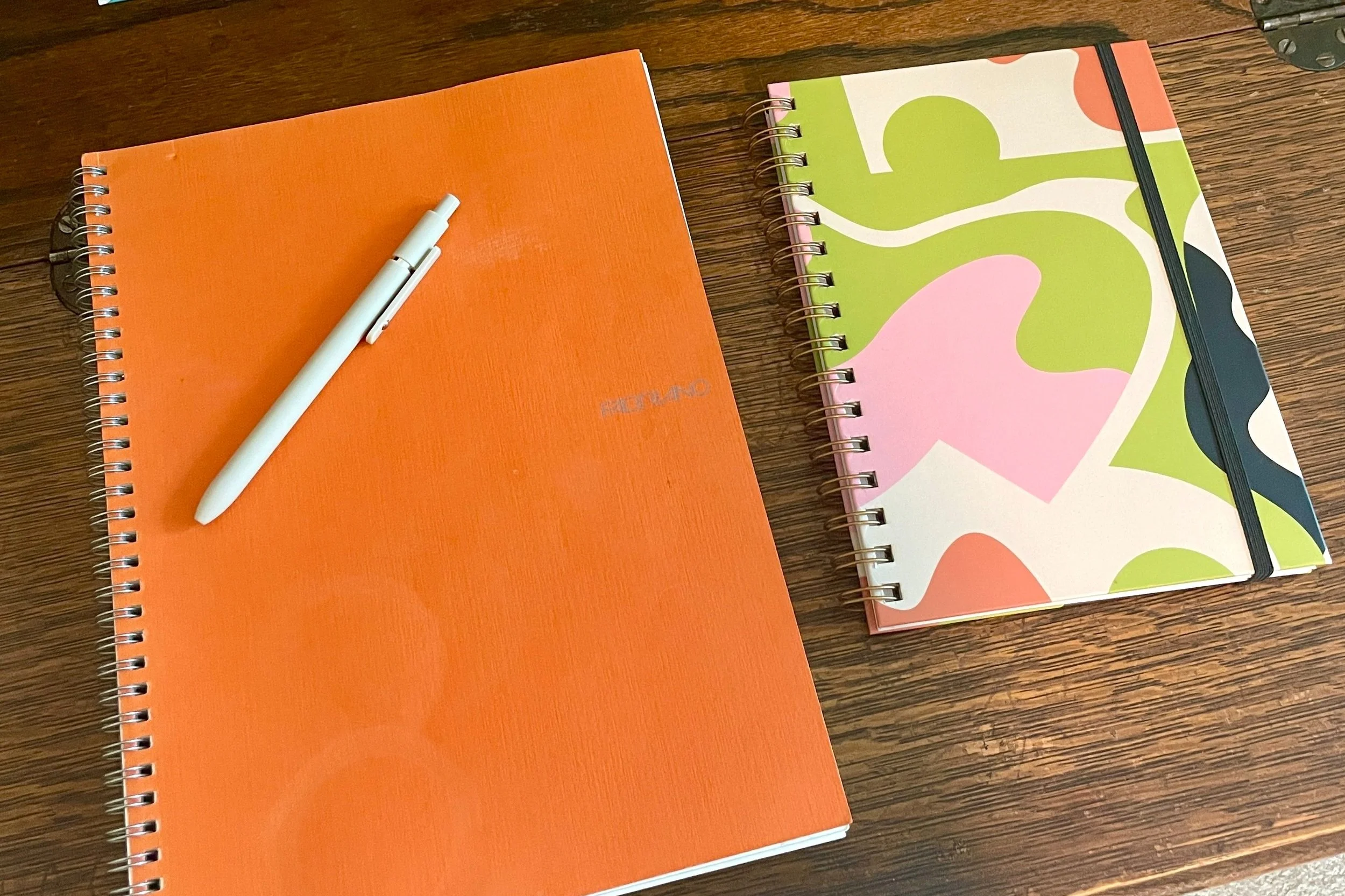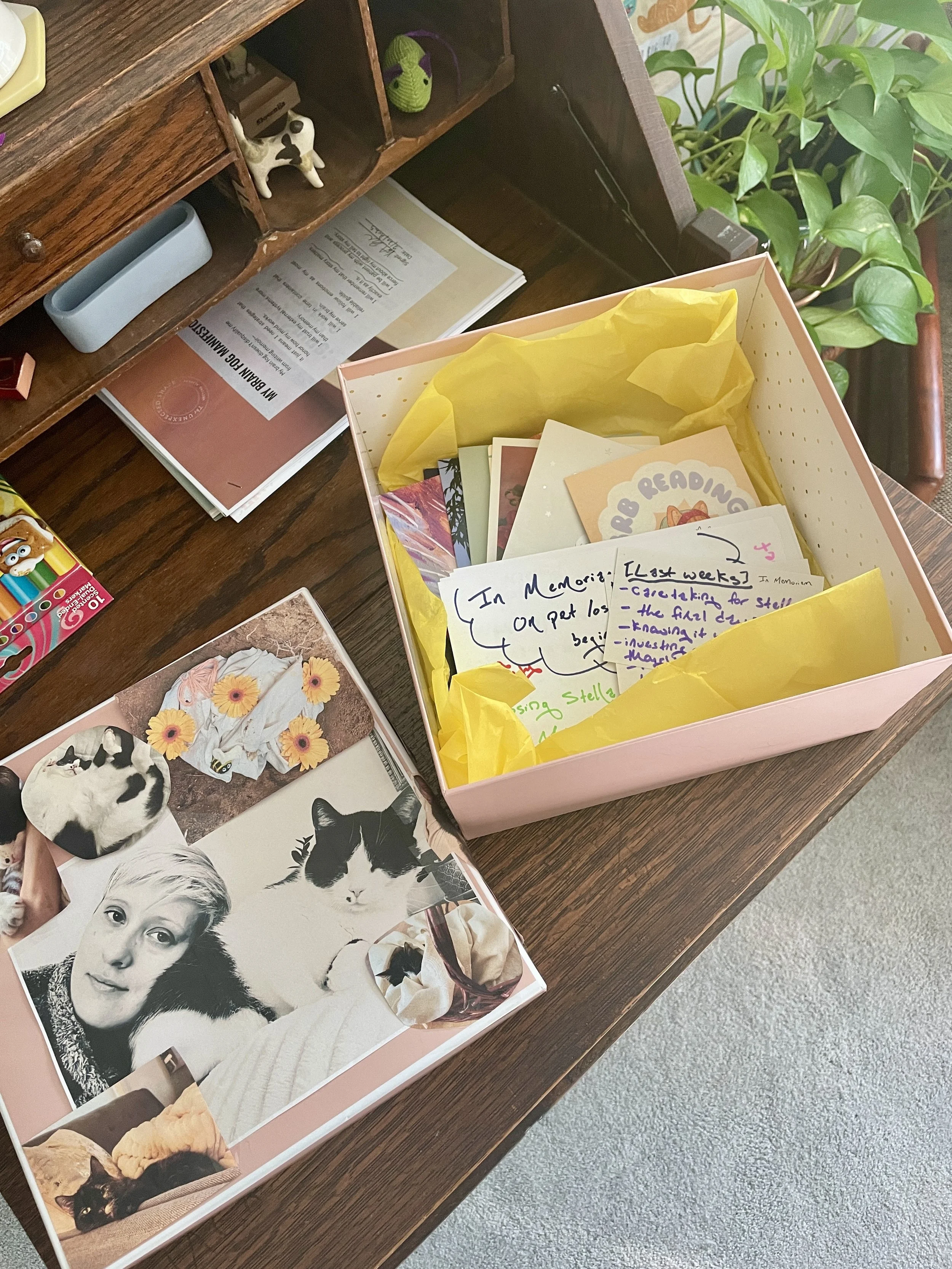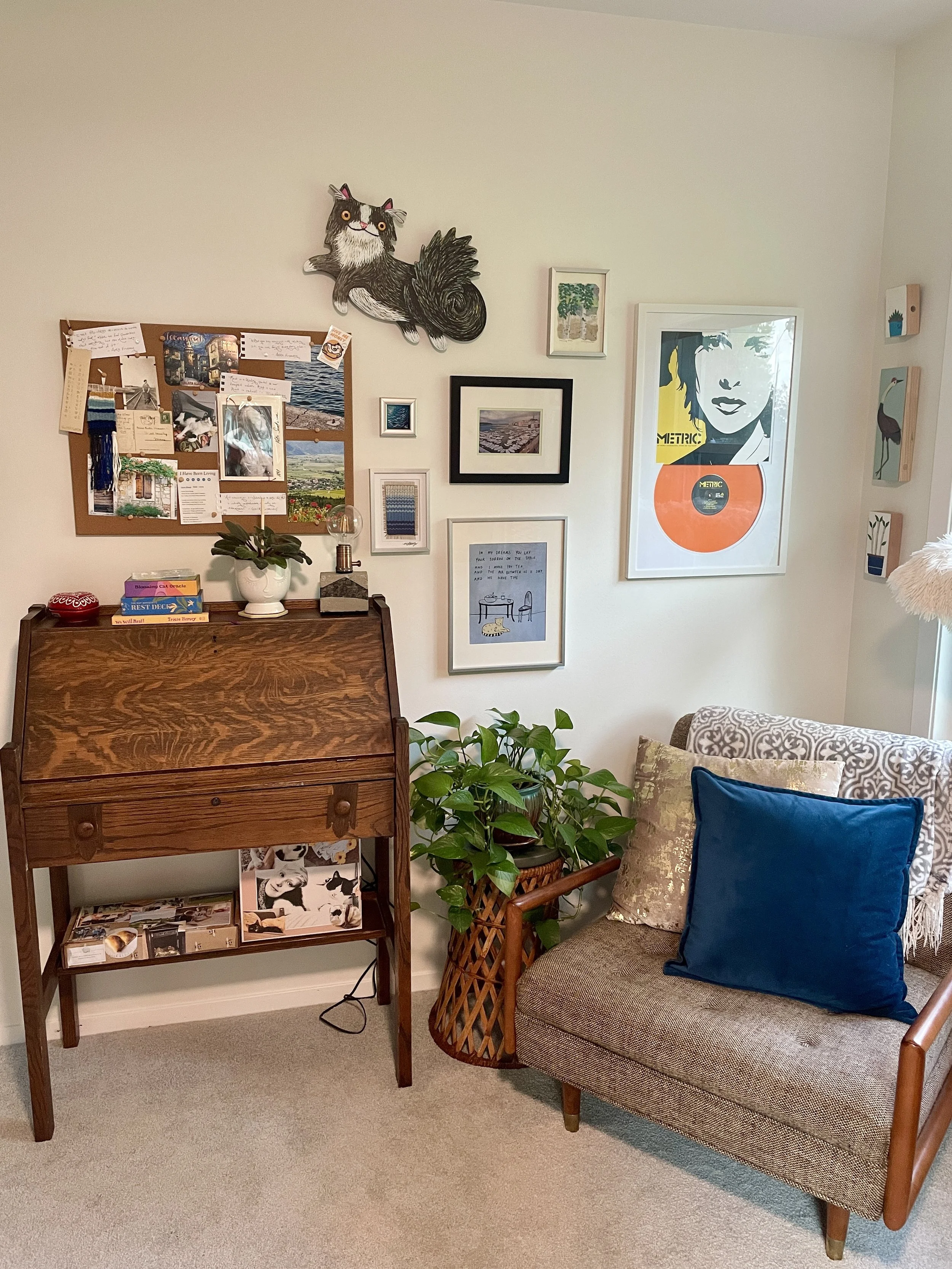A New Start Takes Root: How Loss Sprouted a Book Project
Some of my writing tools
I’ve always dreamed of writing a book, but I never knew how I’d start along that path. I produce content regularly for my day job and have written poetry, short stories, personal essays for local and regional magazines, drafts of children’s books, op-eds, ghostwritten articles, news and feature-length stories for websites, and more. But a book project always felt intimating. It’s a big thing, a book, in length and depth. It requires dedication, many hours researching and writing often alone, regular editing and revisions, redirections, and potentially pages full of writing that’ll never be used. All of this sounds like a wild way to spend your time. But when you feel compelled toward a story, really drawn to explore and share it, this dedication of time is a reality, I’m learning, you must accept as part of the writing process.
The story I’m focused on telling is my personal account of losing my beloved cat, Stella and how I’ve navigated the grief experience during her illness and after, and what—in the words of grief researcher, neuroscientist and psychologist, Mary-Francis O’Connor—restoring “a meaningful life” has looked like since her death. I have topic containers for my book project with themes to explore written out on index cards within my book box, which holds physical papers related to my project, from Stella’s vet records and the sympathy cards we received after she passed to journal pages filled with fragments of ideas, lines that may be used or never touched again. I’d like for my book project to not only allow me to share my own experience of loss and grief but also to explore the disenfranchised nature of pet loss overall, and how we can be more compassionate to ourselves and others wading through these challenging, stigmatized waters.
My book box
I didn’t intend to begin a book project this year, and certainly not a nonfiction one at that. If anything, I thought my first book would be a novel or collection of poetry. But then Stella fell ill and I was pulled to read a book that had been sitting unread on my shelf for a few years—From Here to Eternity: Traveling the World to Find the Good Death by Caitlin Doughty. With Stella’s illness, we were thrown into the deep end of intensive caregiving and, eventually, what preparing for a death looks like. From Here to Eternity helped illuminate what creating a good death can mean for a loved one. Most immediately this meant preparing for Stella’s passing, as we witnessed her actively transition from being ill to dying.
From her pre-death period, marked by much anticipatory grief, to after her death, which continues to sprout grief at unexpected times much like a dandelion finds its way through the smallest of cracks, I came back to writing. I’ve written three essay-blog posts focused on losing her and grieving her, and I’ve been touched by the poignant, kind messages I’ve received from readers who have been resonating with my experience and work. These responses—and an email newsletter from award-winning writer, Esmé Weijun Wang about her next Unexpected Shape Writing Academy virtual cohort—compelled me to further explore my story and the pet loss grief experience. In particular, I took Esmé’s email as a sign that I could seriously return to writing and actually work toward a book project despite living with the health limitations.
My writing space
I’m over half-way through the three-month cohort and it’s been a wonderfully supportive learning and peer-connection experience. With author lectures from the likes of Eula Biss and Suleika Jaouad and a whole online community to connect with, the Unexpected Shape Writing Academy has been the catalyst I needed to give myself permission to explore my story and take on this project—and to know that it all matters.
So far, this book project has been a mix of sadness, intrigue, doubt, enlightenment, frustration, and satisfaction. I’m here for it all, even if my project intention shifts somewhere down the line. Mostly though, I’m grateful. Grateful for the chance to work on this project, grateful for the writing academy and my cohort members, and grateful to Stella for leading me back to writing. Even in loss, a new beginning can take root.


